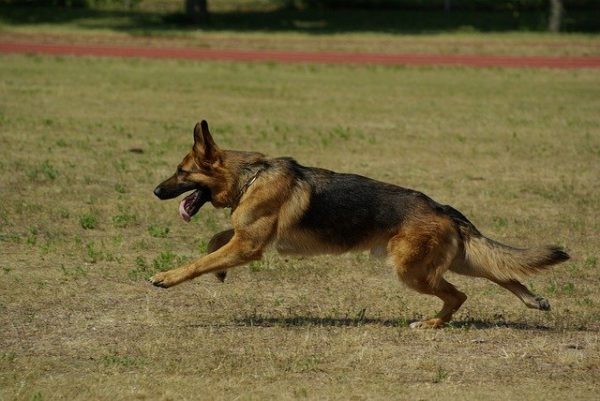Learn About German Adjectives
Adjectives are the words you use to describe everything. Whether it’s the color of your hair or the size of your house, you need adjectives to talk about them. That’s why it’s so important to master adjectives in German. Although grammar can be boring, this part of German is definitely not. Here’s a fun and easy guide to German adjectives.
How Adjectives Work in German
German adjectives describe or modify a noun. But, what happens when you’re comparing two nouns to each other? Or you’re declaring the superiority of one over all? That’s when you use comparative and superlative adjectives in German. In English, these would be “good – better – best” or “late – later – latest”. But in German, things are a little bit complicated.
In German, you need to conjugate an adjective to fit the noun. These declensions vary based on the noun’s case, gender, and plurality. Declensions also change depending on whether the noun appears with a definite or an indefinite article. Let’s take a look at a couple of examples of comparative and superlative German adjectives, and how the endings change according to the rules of grammar.

Comparative and Superlative German Adjectives
Examples of comparative adjectives and superlative adjectives in German would be:
- Comparative: Er ist größer als ich (He is taller than me).
- Superlative: Er ist der größte (He is the tallest).
Like in English, most regular German adjectives are made comparative by adding the suffix “-er”. “Als” in the example is “than”. When adding the -er, if the vowel in the adjective is an a, o, or u, you give it an umlaut (unless it is “au”). There are some exceptions for these rules, but the majority of adjectives can be made comparative in this way:
- klein → kleiner (small/smaller)
- warm → wärmer (warm/warmer)
- schlau → schlauer (smart/smarter)
German superlative adjectives are also somewhat similar to their English counterparts. Most superlatives are formed by adding the suffix -ste. Adjectives ending in d, t, or any s-sound (such as -s, -ss, -sch, -z, or -ß) must have an e inserted before the -ste.
- billig → billigste (cheap/cheapest)
- hübsch → hübscheste (pretty/prettiest)
- interessant → interessanteste (interesting/most interesting)
How to Conjugate German Adjectives
As we already know, German nouns can be masculine, feminine, or neuter. They can also be singular or plural. So, since the adjective describes the noun, the adjective has to fit all of these categories. German adjectives must always agree in quantity and gender with the nouns they modify. Pay attention to all the little details when conjugating German adjectives, it’s easy to overlook them.
There are two types of descriptive adjectives in German: predicate and attribute.
Predicative Adjectives
Predicate adjectives follow linking verbs like “to be” (sein, werden) or “to remain” (bleiben). They modify the subject and do not have a gendered ending.
- Example: Der Hund ist schnell. – The dog is fast.
Attribute Adjectives
Attribute adjectives precede nouns or pronouns and take special endings determined by the gender, number, case and article of the nouns they modify.
- Example: Das was ein schneller Hund. – That was a fast dog.
These are the endings you need to use to conjugate attribute adjectives.
|
Singular |
|
Plural |
|||
|
Masc. |
Fem. |
Neut. |
|
All Genders |
|
| Nominative |
—er |
—e |
—es |
|
—e |
| Accusative |
—en |
—e |
—es |
|
—e |
| Genitive |
—es |
—er |
—es |
|
—er |
| Dative |
—em |
—er |
—em |
|
—en |
Adjectival Pronouns in German
Attribute adjectives aren’t the only ones you need to conjugate. According to the table above, certain adjectival pronouns also decline like the definite article “der”: all-, dies-, jed-, manch-, solch-, welch-. These are sometimes referred to as der-words.
Example – dieser:
|
Singular |
|
Plural |
|||
|
Masc. |
Fem. |
Neut. |
|
All Genders |
|
| Nominative |
dieser |
diese |
dieses |
|
diese |
| Accusative |
diesen |
diese |
dieses |
|
diese |
| Genitive |
dieses |
dieser |
dieses |
|
dieser |
| Dative |
diesem |
dieser |
diesem |
|
diesen |
Adjectival Possessive Pronouns in German
Adjectival possessive pronouns and “kein” (none) decline similarly to the article “ein”, they can be referred to as ein-words. The general declension pattern is as shown in the following table:
|
Singular |
|
Plural |
|||
|
Masc. |
Fem. |
Neut. |
|
All Genders |
|
| Nominative |
— |
—e |
— |
|
—e |
| Accusative |
—en |
—e |
— |
|
—e |
| Genitive |
—es |
—er |
—es |
|
—er |
| Dative |
—em |
—er |
—em |
|
—en |
Example – kein:
|
Singular |
|
Plural |
|||
|
Masc. |
Fem. |
Neut. |
|
All Genders |
|
| Nominative |
kein |
keine |
kein |
|
keine |
| Accusative |
keinen |
keine |
kein |
|
keine |
| Genitive |
keines |
keiner |
keines |
|
keiner |
| Dative |
keinem |
keiner |
keinem |
|
keinen |
German Adjective Endings With Definite Article
These are the endings the adjective receives when the noun it describes comes with a definite article. These are “der”, “die”, or “das”.
|
Singular |
Plural |
||||
|
Masc. |
Fem. |
Neut. |
All Genders |
||
| Nominative |
—e |
—e |
—e |
|
—en |
| Accusative |
—en |
—e |
—e |
|
—en |
| Genitive |
—en |
—en |
—en |
|
—en |
| Dative |
—en |
—en |
—en |
|
—en |
German Adjective Endings With Indefinite Article
When the nouns the adjective represents comes with an indefinite article, these are the endings you have to use. Indefinite articles in German are all the variations of “ein-” (ein, eine, eines, einer, …).
|
Singular |
Plural |
||||
|
Masc. |
Fem. |
Neut. |
All Genders |
||
| Nominative |
—er |
—e |
—es |
|
—e |
| Accusative |
—en |
—e |
—es |
|
—e |
| Genitive |
—en |
—en |
—en |
|
—er |
| Dative |
—en |
—en |
—en |
|
—en |
Examples of Adjectives in German
|
Comparitive |
Superlative |
||||
| klein | small | kleiner | smaller | kleinst | smallest |
| leise | quiet | leiser | quieter | leisest | quietest |
| lustig | funny | lustiger | funnier | lustigst | funniest |
| alt | old | älter | older | ältest | oldest |
Examples of German Adjectives with Umlaut
|
Comparitive |
Superlative |
||||
| arm | poor | ärmer | poorer | ärmst | poorest |
| jung | young | jünger | younger | jüngst | youngest |
| kalt | cold | kälter | colder | kältest | coldest |
| krank | sick | kränker | sicker | kränkst | sickest |
| kurz | short | kürzer | shorter | kürzest | shortest |
| lang | long | länger | longer | längst | longest |
| stark | strong | stärker | stronger | stärkst | strongest |
| warm | warm | wärmer | warmer | wärmst | warmest |
Irregular German Adjectives
As is English, there are many German adjectives with irregular comparative and superlative forms. A summary of some of the more common examples is provided below.
|
Comparative |
Superlative |
||||
| gut | good | besser | better | best | best |
| viel | much | mehr | more | meist | most |
| hoch | high | höher | higher | höchst | highest |
| nah | near | näher | nearer | nächst | nearest, next |
Learn German Adjectives Naturally
German adjectives with all their potential endings, irregularities, and umlauts can seem daunting. But, you’ll actually learn them very quickly. You can get a natural feel for how adjectives work in German by hearing them in real German sentences. That’s exactly how OptiLingo teaches you German.
OptiLingo is the app that can get you to German fluency fast. It contains the list of the most common and useful German vocabulary. These words and phrases are the same ones German locals use. So, with these in your pocket, you can learn to speak exactly like them. Discover German adjectives naturally by downloading OptiLingo!










